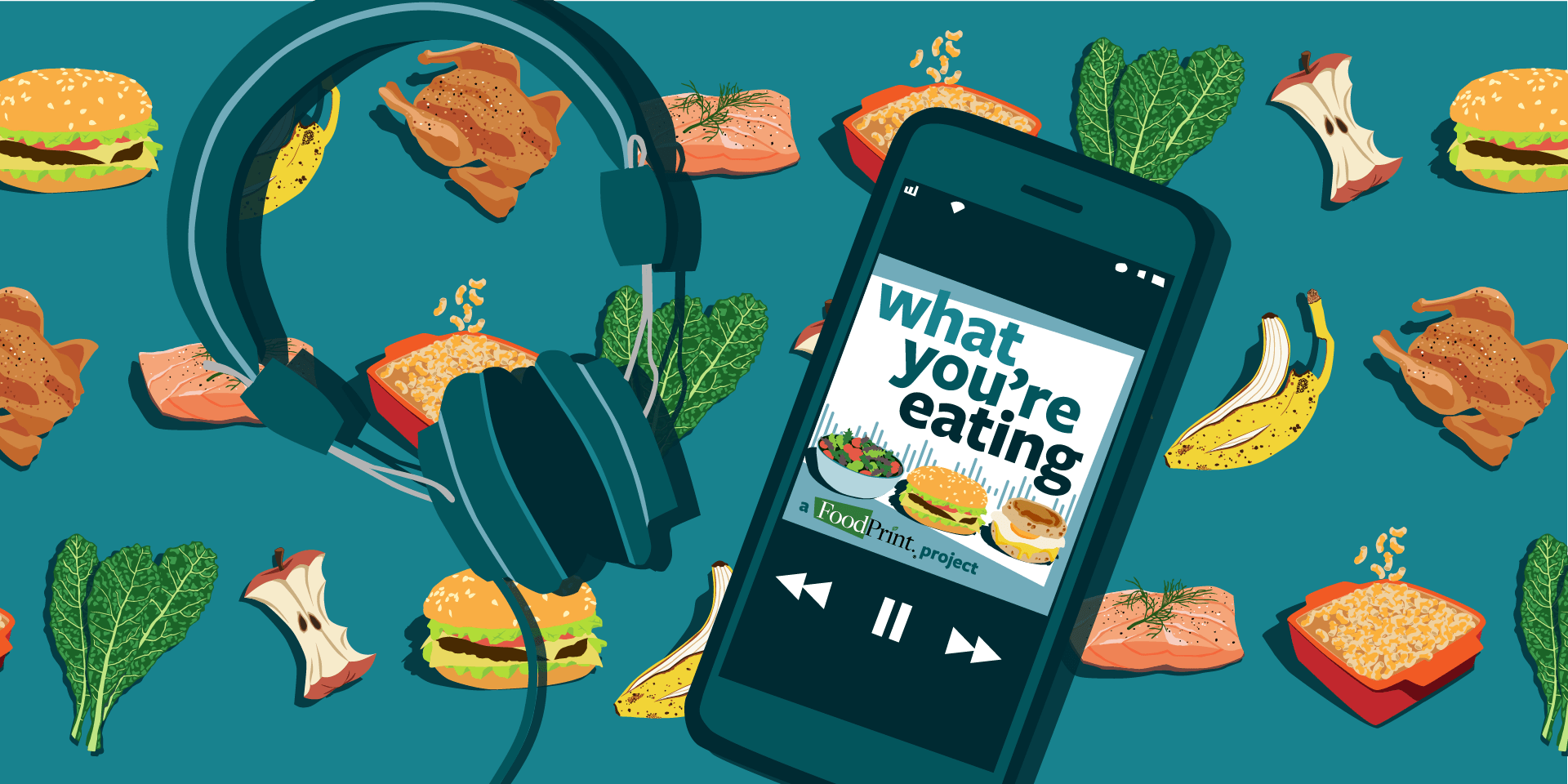Curious About Plant-Based Milk? Tom Philpott Answers Your Questions
Walk into any coffee shop or browse any milk case at the grocery store and you’ll be sure to find an array of plant-based milks. From nut milks such as almond and macadamia, to the trendy oat milk, these alternative milk options may leave you with questions — are some really more sustainable than others? Should I be concerned about all of the ingredients I read on the labels?
In the latest episode of our podcast, “What You’re Eating,” we dive deep into the different milks you’re putting in your coffee, including plant-based milks and cow’s milk, to evaluate the different foodprints of each type. On that episode we speak with food journalist and researcher, Tom Philpott, who has written extensively about almond production and plant-based milks.
We asked Tom to join us in a Twitter chat to field your questions about plant-based milks. Keep reading to hear his insights and then tune in any time after 10/18 to listen to our podcast episode.
Q: Any environmental impacts from the added oils and gums in plant-based milks?
TP: These are used in such tiny amounts that I doubt they move the needle much environmentally. Should also note that they’re widely used in loads of processed dairy products, like flavored milk and many yogurts.
Q: What could the future of plant-based milk look like if we are looking for true sustainability?
TP: I’d like to see a move away from feedstocks that can only be grown in a tight range of climates (almonds) to ones that have a broad range, like oats. I also like feedstocks that do well when grown in rotation with other crops — another advantage for oats.
Q: Do you foresee a future where plant-based milk is normalized?
TP: We’re already there, or close. Plant milks make up 15%, and growing, of US total milk sales. A ubiquitous union-busting coffee chain now features a specialty product centered on oat milk — you’d have to make a special request to get dairy milk .
Q: What’s the most planet-friendly alt milk?
TP: Right now, it’s oat milk. Simply rotating oats into the Midwest’s ruinous corn-soy duopoly — along with a legume like red clover — could go a long way toward ramping down that region’s environmental wreckage. In short, an expansion of US oat agriculture could have large environmental benefits.
That’s simply not true of, say, almonds. California almond acreage will have to shrink because of declining water resources. I make the case for oat milk here. (Pardon the overblown headline. Oat milk can’t and won’t “change everything.”)
Q: Is oat milk truly considered healthier/more sustainable?
TP:”Healthy” is a hard one to quantify, but it brings more protein & fiber than most alt milks. I think it wins on sustainability for reasons laid out above.
Get the latest news, from FoodPrint.
By subscribing to communications from FoodPrint, you are agreeing to receive emails from us. We promise not to email you too often or sell your information.
Top photo by Kristina Blokhin/Adobe Stock.
More Reading
The invisible immigrant labor sustaining America’s chicken obsession
October 21, 2025
Can extended producer responsibility programs push food companies to use sustainable packaging?
October 16, 2025
The meat industry smeared the Planetary Health Diet. Now its creators are back with more evidence.
October 10, 2025
300 million male chicks are killed every year. Can in-ovo sexing change that?
September 30, 2025
How to avoid eating microplastics and chemicals in plastic
September 25, 2025
For these cocoa farmers, sustainability and the price of beans are linked
September 17, 2025
Salmon hatcheries: Unsuccessful conservation, insufficient regulation, and poor animal welfare
September 16, 2025
Can recycled soil blends support a more sustainable future?
September 5, 2025
City-owned grocers may be a lifeline for the food insecure — but they're not the only public model
August 14, 2025
Pesticide giants want to make it impossible for you to sue
August 5, 2025

